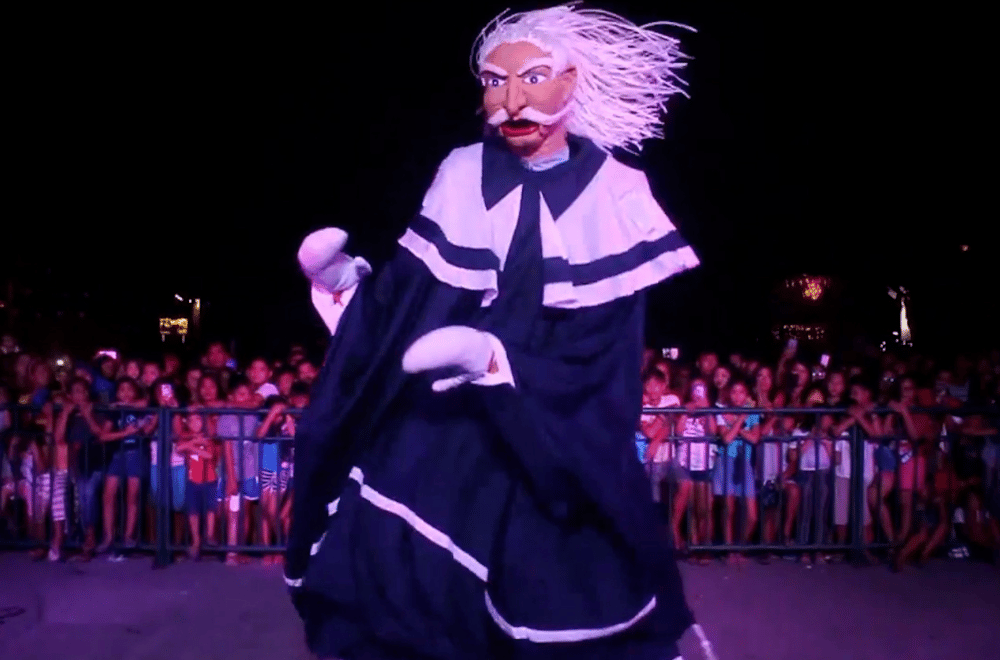The streets of Sta. Ana in Pampanga came alive once again with the lively movements of “Majigangga,” towering mechanical puppets celebrated for their unique designs and captivating dances.
The seven-foot-tall puppets, made from bamboo sticks, PET bottles, papier-mâché, and other recycled materials, are a staple of the town’s New Year festivities.
Unlike the stationary giants of Angono, Rizal, the Majigangga’s hands can move, a feature that symbolizes warding off bad luck and misfortune.
“Kung mapapansin niyo, yung mga kamay nila nagswasway, umiikot-ikot. Yun yung manifestation na inaalis at itinataboy nila yung mga misfortune, sakuna, sakit bago dumaan yung prusisyon sa mga street ng Sta. Ana,” Allen Luis Dizon Jr., founder and chairman of CASA-APU, said.
The tradition, which began in the late 1960s, is believed to have been influenced by Spanish colonization and the Galleon Trade.
Over the years, the celebration has evolved into a vibrant display of local artistry and culture, with highlights including a Majigangga dance-off.
During the showdown, the giant puppets competed in synchronized dances set to popular music.
Dizon also shared how the festival involves the youth in creating mini versions of the puppets, called “Majigangganitos,” and participating in poster-making contests.
“We create workshops on how to make Majigangganitos and Majigangga itself. Those factors, siguro, yung isa sa mga reasons bakit yearly dumadami yung participants,” he added.




